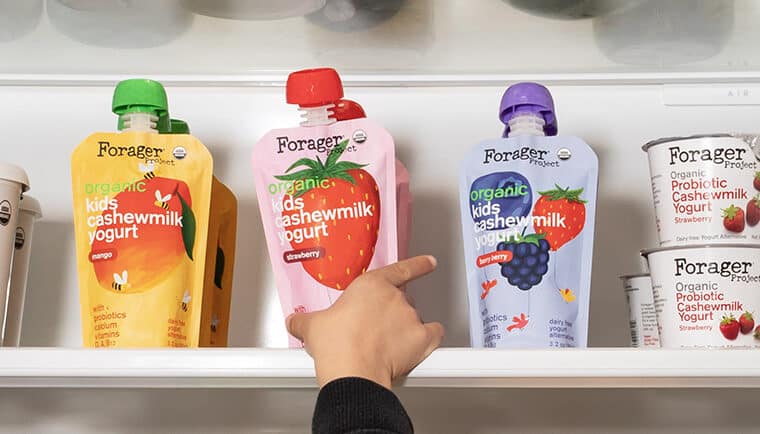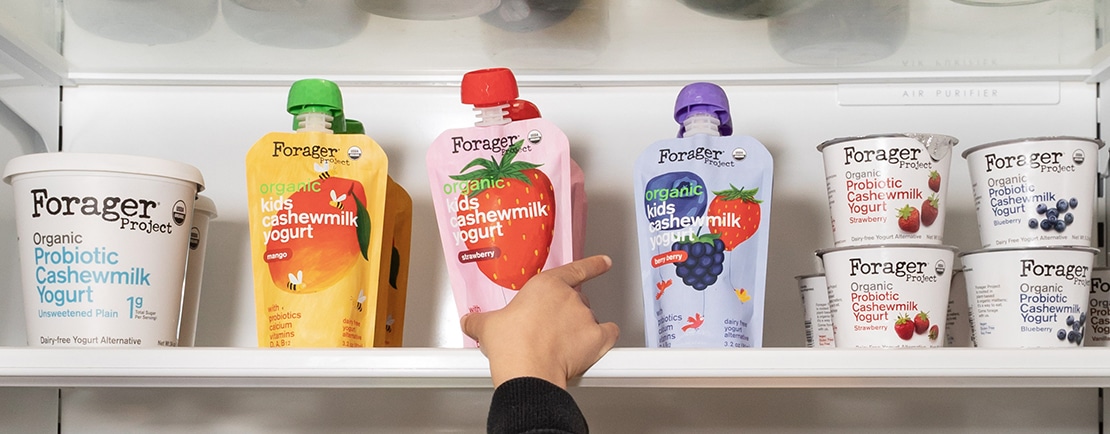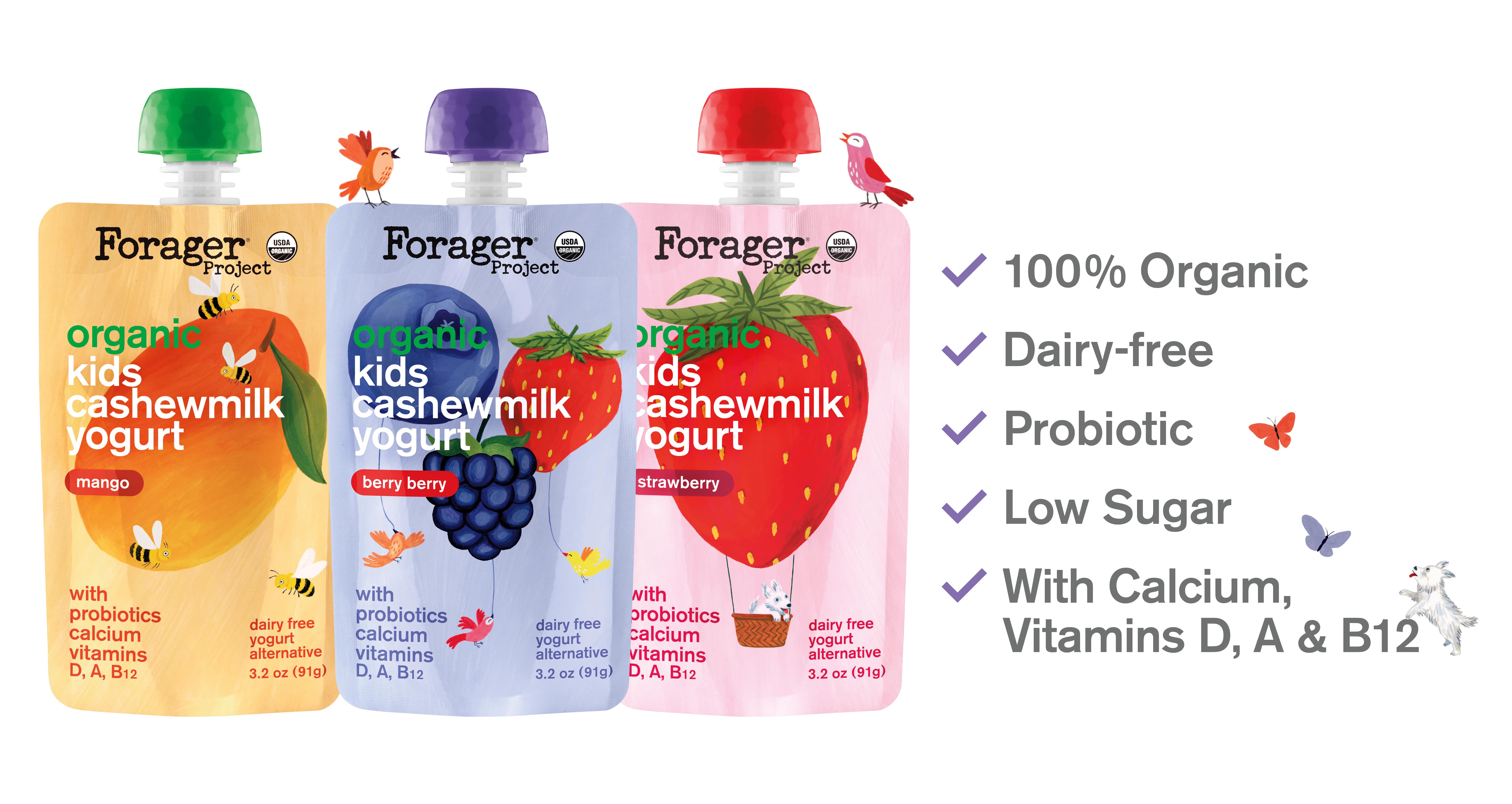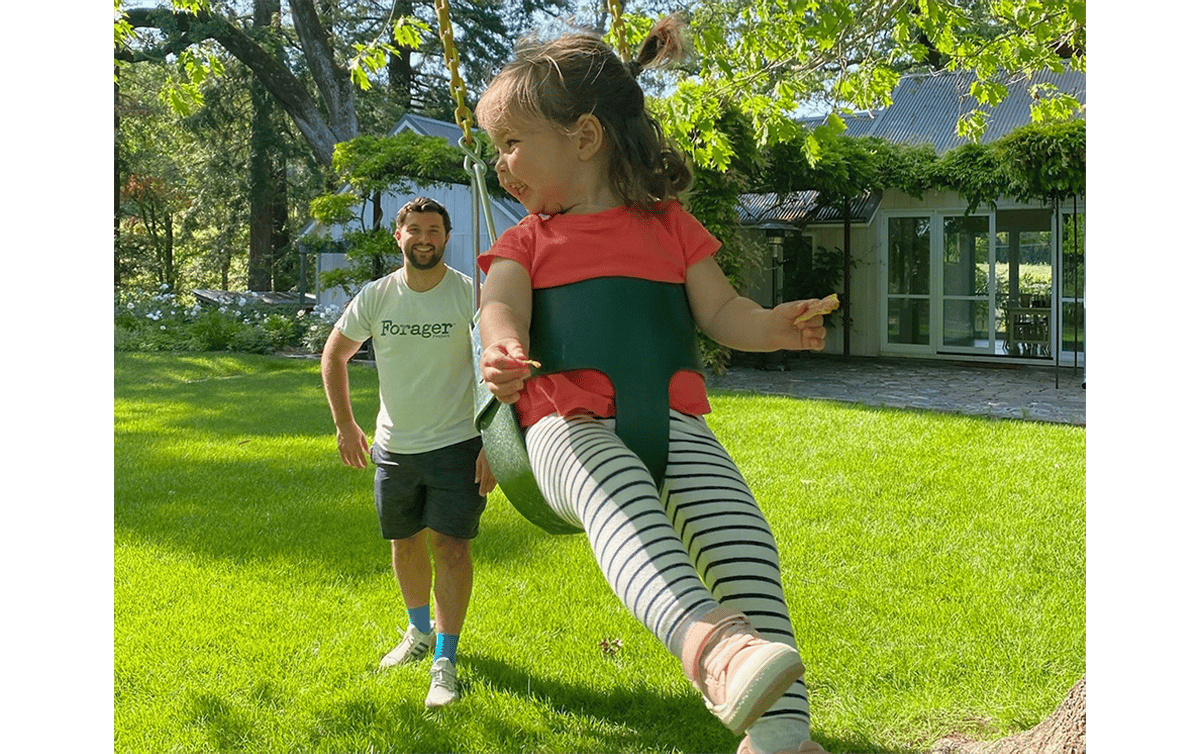



Not all foods or yogurts are created equal. Many yogurt brands, especially those marketed toward kids, can be loaded with things like added sugar, artificial ingredients, and preservatives. They also may lack probiotics, and contain non-organic ingredients that can expose your child to harmful pesticides that their growing bodies and brains are more sensitive to compared to adults. Each of these things can take away from the health benefits that dairy free yogurt for kids can otherwise offer.
This is why it is important to be selective when it comes to choosing the right yogurt for your child. Here are some of the problems Forager Project’s new kid’s yogurt solves:

In addition, Forager Project’s yogurt pouches are uniquely fortified with essential vitamins and minerals. These include calcium, vitamin D, vitamin A, and vitamin B12, which are all essential for a growing child’s body.
The addition of B12 is especially important since it is the only nutrient not naturally found in plant foods. This makes it essential for anyone following a vegan or mostly plant-based diet. Calcium and vitamin D can also be hard to find in vegan products, but support the growth and development of their bones. Vitamin A is crucial for child health and immune function.

Forager Project kid’s pouches are also a good option for kids with certain food sensitivities or allergies. While your child can be allergic to any food, nine foods make up about 90% of all food allergies in kids. These foods include:
Having an allergy to cow’s milk is among the most common hypersensitivity in kids. Unfortunately, milk is the main ingredient in traditional yogurt. Many dairy-free yogurts for kids use soymilk as a dairy-free alternative, but many kids who are sensitive to cow’s milk are also unable to tolerate soy protein.
This is why choosing vegan yogurt alternatives can be a great way to give your child the taste, convenience, and benefits of dairy-free yogurt for kids without worrying as much about food allergies.
When it comes to introducing high allergen foods, you may have some questions about how to best go about it with your child. The current American Academy of Pediatrics guidelines recommends introducing high-allergenic foods as part of the first foods, between 6 months-1 year of life. This is based on evidence that shows that early introduction may actually help prevent food allergies
Ultimately, it is always best to consult with your pediatrician to understand what is best for your unique child when it comes to the best options for dairy-free yogurt for children.

Joanna Foley, RD, is a registered dietitian and freelance writer who has been featured in a wide variety of media outlets. She is also the author of two cookbooks and lives in San Diego, CA with her family.